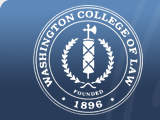Abstract
With the National Labor Relations Act of 1935 (NLRA), Congress intended to provide private-sector employees with the right to organize collectively for their mutual aid and protection in the workplace. However, the NLRA faces a tsunami of criticism, much of which highlights its inadequacies with respect to protecting collective activity among employees. In light of the NLRA’s myriad limitations, some scholars have developed promising proposals to identify new legal bases for protecting collective activity among employees outside of the NLRA. This Article redirects our gaze back to the NLRA’s potential to protect some forms of collective activity. It elaborates the NLRA’s underappreciated role as a defense in state defamation lawsuits against worker organizations and employees engaging in collective activity. The defense requires courts to employ a defamation-defendant-friendly heightened standard of proof to defamation claims that arise in the labor context. The analysis shows that, while many aspects of the NLRA are beleaguered and out of step with modern workplace relations, the NLRA defamation defense has some potential to remain relevant in the context of new challenges, new worker organizations, and new worker organizing strategies. It cautions against the narrowing the NLRA’s preemption doctrine in such a way that endangers this underappreciated protection of collective activity.
Recommended Citation
Griffith, Kati L. “The NLRA Defamation Defense: Doomed Dinosaur or Diamond in the Rough?” American University Law Review 59, no.1 (October 2009): 1-47.

